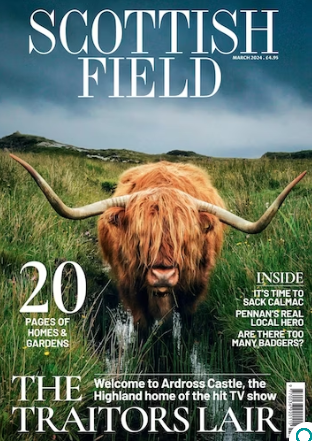Ann Cleeves, the creator of the books behind the BBC’s Shetland and ITV’s Vera TV series, tells Scottish Field on her love for libraries, birds, actors and the islands that are her muse.
I wrote about Shetland because I love it there. I first went to the islands in 1975 to work as an assistant cook at the bird observatory on Fair Isle when I dropped out of an English degree. I couldn’t cook and I didn’t know anything about birds, but off I went. I met my husband there and made many lasting friendships.
I started writing crime novels because I love reading them. My husband was a nature reserve warden and we lived on Hilbre Island in the Dee estuary. When I fell pregnant I decided that trudging backwards and forwards across the shore before the tide in oilskins and wellies to work as a probation officer wasn’t on. So I started writing instead.
The people of Shetland are amazingly gracious. When I started writing books set there I was very conscious that it was a bit impertinent, an outsider coming in and writing about the place. I got some things wrong at the beginning, but the people have always been incredibly generous. Now I get an islander to read the script before it goes to my editor to make sure I don’t make too many howlers.
I enjoy watching my stories on television. It’s very different from the book but the central actors always capture the characters in my stories, which is phenomenal to watch. Once you give your book away to a reader it’s not yours any more, and giving it to a team to make it into a TV programme is just extending that a bit more. And I love the people who make the programmes. I did the Edinburgh Festival with Brenda Blethyn, who plays Vera, and is very supportive, while I launched Murder at the Ravenswick Hotel – a special murder mystery script for libraries to use – at the Harrogate Crime Writing Festival with two of the stars of Shetland, Alison O’Donnell, who plays Tosh, and Steven Robertson, a Shetlander who plays Sandy. We support each other.
The readers sometimes get upset by changes to the books in adaptation for TV. People say ‘how can you bear it, they’ve lost this character, they’ve changed that character and they’ve even changed the murderer’ but I’m not really fussed because it’s a different form; it’s not mine at that point. There will be at least another two Shetland novels. Thin Air is out now but I did one quartet and then I couldn’t stop because I really loved writing about Shetland.
I am passionate about libraries and keeping them open. There was an OECD report that said that reading for pleasure was a better indicator of academic success than social class or anything else and that’s pretty impressive I think. Libraries, especially in rural areas or in deprived city areas as well, are where kids get thjeir first taste of the magic of story and of the possibilities of the world. The creative industries bring eight million pounds an hour into this country so if we don’t encourage creative activity then we’re going to miss out economically and people will no longer have the pleasure of knowing about art, pictures and music.
My favourite book of all time is To The Lighthouse by Virginia Woolf. It’s being adapted onto radio and I’m listening to it and just loving it all over again.
My friend Neil is my biggest hero. There are lots of people who I’m really proud to know and very inspired by. Neil was only in his early fifties when had had a massive stroke, but he’s getting on with his life. His speech isn’t brilliant and he has to use a wheelchair or sticks sometimes, but he’s just so sparky and fighting for what he believes in and still out there, doing the business.
I write to relax. I love writing. And the more successful you get the more exciting it is. I love going out and meeting readers, all the TV stuff, but my real, real pleasure is to be at home at the kitchen table just writing. I love that. That’s the best, just telling the stories that are in my head. I couldn’t live without Radio 4. And my husband, obviously.
- This feature was originally published in 2014.
TAGS

